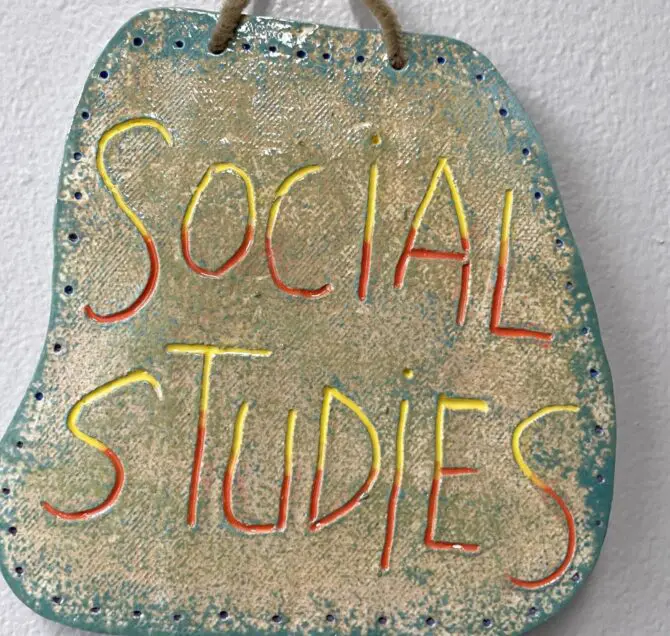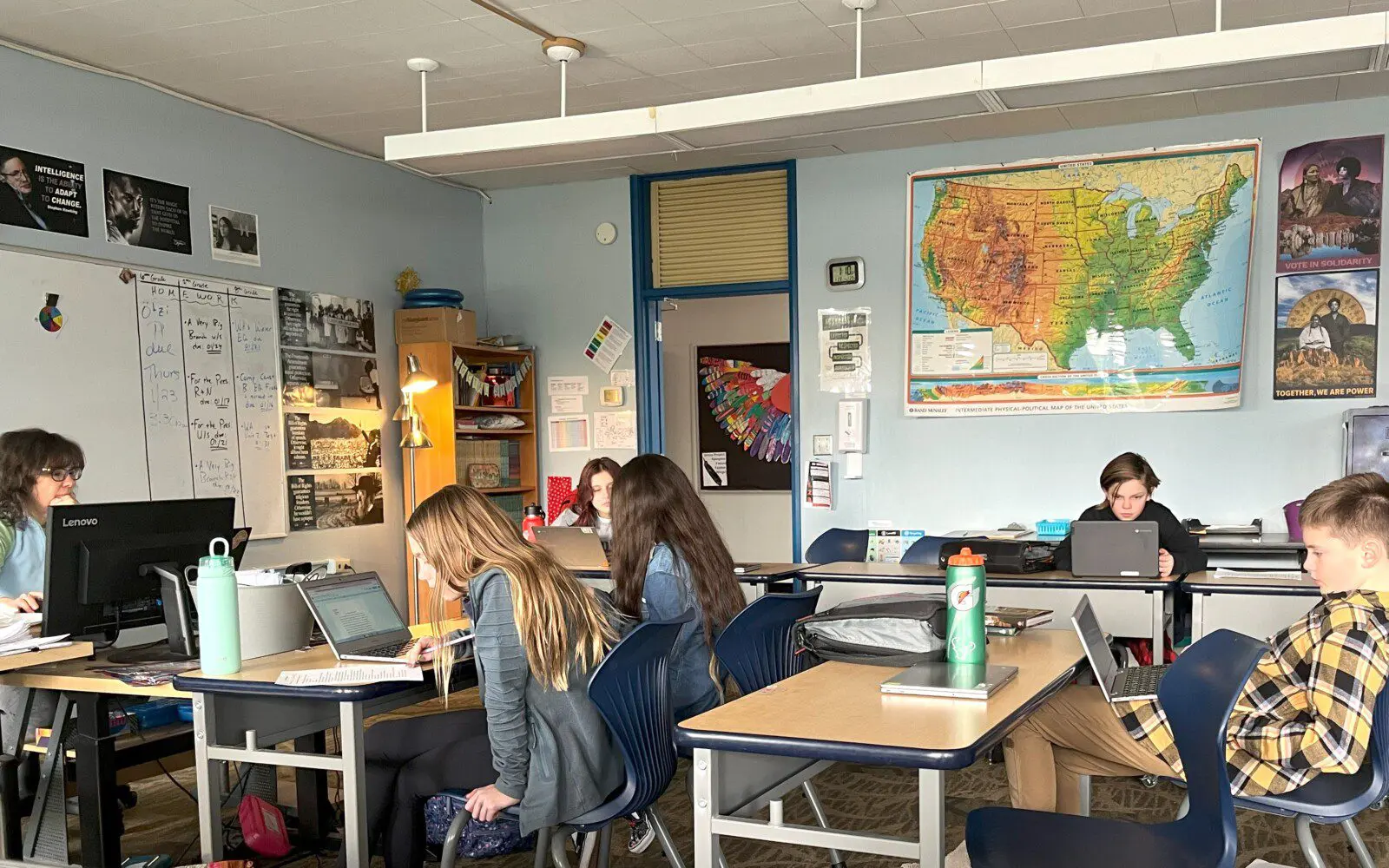Program Updates: Social Studies – February 2025

Grade 6 (Daniela)
In January, sixth graders studied the life and death of Ötzi the Iceman, a European man who lived in the foothills of the Alps 5,300 years ago. Students learned how researchers have used existing evidence to piece together how he and his people lived and how he died. Using evidence provided to them in videos, a podcast, and multiple articles, each student wrote a formal paragraph about this ancient mummy.
For the month of February we are engaging in a survey of topics related to Black History Month. Each day we begin class with one or two short videos from the series “29 Black History Facts You Probably Didn’t Learn in School” created for CBS Chicago by educator Ernest Crim III.
This week, Kali and I are team teaching about the music and history of the Civil Rights Movement. To support the students’ understanding of the music, we are discussing important topics like segregation, the NAACP, and the landmark Supreme Court case Brown v. Board of Education.
We are also watching episodes one and three from the critically acclaimed documentary Eyes on the Prize, which provides invaluable insight into this seminal time in American history. Consider streaming it at home!

Grade 7 (Tim)
Seventh grade students finished their unit on the executive branch by taking a test last Friday. Tim is joining eighth grade students this week on their trip to Rome.
After mid-winter break, seventh grade students will fix their last big question on the legislative branch before embarking on their next big question on the executive branch. This pattern of addressing all of Tim’s comments on paragraphs or mini-essays immediately prior to working on the next big question works well for students’ growth as writers.
Students will have a choice of these two questions to answer for their executive branch big question:
- What is the most important responsibility of the president? Students learned that the six main roles of the president are head of state, commander in chief, chief executive, party chief, agenda setter, and keeper of the economy.
- For Challenge, students can choose to answer this instead: What is the most important foreign policy tool, and what is one example of this tool in action? Students who choose this question will be required to also find one additional source and use it in their paragraph or mini-essay.
Grade 8 (Tim)
Eighth grade students have finished their Washington state history semester and will begin working on a few new projects in the coming weeks and months. First, as part of Black History Month, students will choose an African American Seattle-area activist and watch an interview with them, which is available on the Seattle Civil Rights and Labor History website. Students will focus on a specific activist and analyze their contributions to Seattle and to civil rights. This, of course, will culminate in a written paragraph or mini-essay for Challenge.
Shortly after this project, students will embark on a Holocaust unit with the Holocaust Center for Humanity, focusing on the Pyramid of Hate and how the ultimate genocide of Jewish people and others in the 1940s did not appear out of a vacuum. Instead, the hate started at lower levels and was unchecked, ultimately rising to the genocide and murder of over six million Jewish people and others. Students will use this unit to analyze contemporary examples of lower-level hate, emphasizing that we all need to counter hate in order to keep it rising on the Pyramid of Hate.
